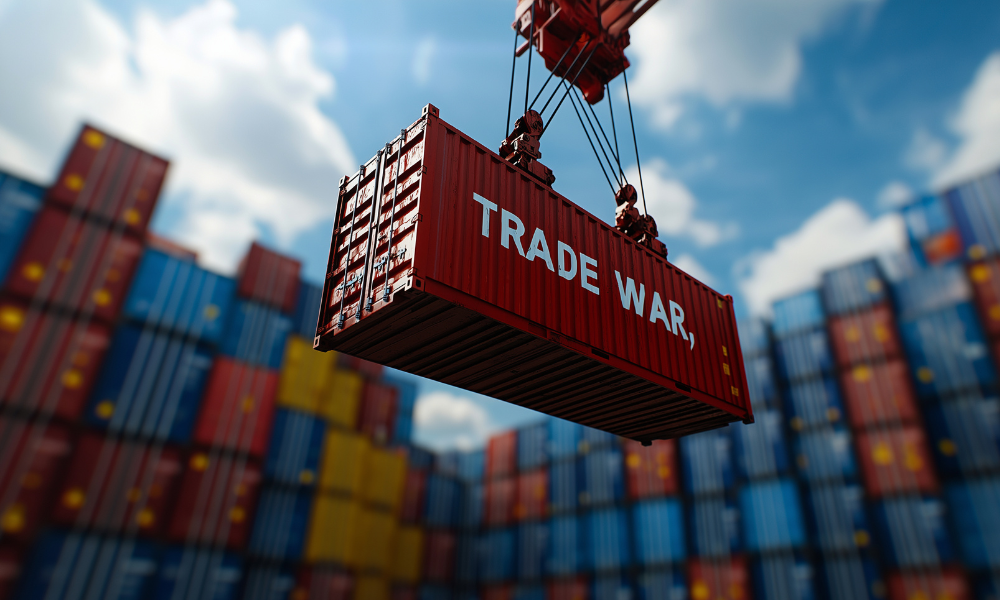Investment in housing slows as tariffs and political back-and-forth shake builder confidence

A temporary pause on proposed US tariffs may have eased short-term fears, but Canadian real estate developers and investors are still grappling with uncertainty as trade tensions continue to cloud the outlook.
President Donald Trump suspended steep tariffs that were scheduled to take effect on imports from Canada and Mexico – 25% on Canadian goods and 10% on Chinese imports. The move came just hours before implementation, after both Canada and Mexico agreed to strengthen border enforcement.
However, the last-minute nature of the decision is a fresh reminder of how unpredictable trade policy is influencing development plans and investment strategies across Canada’s housing market.
“The worst part is not even the tariff. It is the disruption and uncertainty,” said Ted Betts, a partner at Gowling WLG with over 25 years in construction law. “The uncertainty is what kills projects.”
That sentiment is being echoed across the development and real estate sectors. Michael Waters, CEO of Minto Group, which currently has about 3,000 housing units under construction across the country, said the unpredictability is making it difficult to plan future builds.
“All of the uncertainty is generally unwelcome and makes it difficult to underwrite new investments,” Waters told The Globe and Mail.
Land sales had recently begun to rebound after a slow couple of years. According to Colliers Research and Altus Group, land sales across seven major Canadian regions reached $2.29 billion in the last quarter of 2024—up 44% from the previous quarter, though still well below the $5.21 billion peak in Q2 2022.
“There was a lot of good sentiment heading into this year,” said Steve Keyzer, executive vice-president at Colliers Canada and head of the firm’s housing redevelopment advisory team in Toronto. “But that has changed and investors have pulled back.”
Keyzer added that if tariffs remain in place or the dispute drags on, “we’re going to see less confidence in all aspects of investment in the economy, and definitely, housing will be affected.”
Market momentum stalling
Earlier this year, real estate groups had forecast a surge in pent-up demand across the country. But that optimism is fading. February 2025 saw home sales decline in key markets like Toronto, Calgary, and Vancouver, a reversal from prior months.
“100% this uncertainty around a trade war will impact new development,” said Shaun Hildebrand, president of market research firm Urbanation Inc. “You can see how it’s already affecting the resale market as buyers are moving to the sidelines. This is on top of unknown implications for construction costs and supply chains.”
Developers are especially concerned about costs tied to materials like steel and lumber, which are often imported. Trump recently proposed doubling tariffs on Canadian steel and aluminum to 50%, though he later indicated it might revert to the original 25% after Ontario agreed to suspend a surcharge on US electricity exports.
Meanwhile, China has responded with new tariffs on $3.7 billion worth of Canadian agricultural goods. Canada, in turn, has imposed retaliatory tariffs on $30 billion of US imports.
Capital and confidence shrinking
The combined impact of interest rate hikes, supply chain disruptions, and now trade uncertainty is squeezing developer margins and slowing capital flows.
“Capital flows to where certainty lies,” said Mazyar Mortazavi, CEO of Ontario-based homebuilder TAS. “It just becomes that much harder to budget, that much harder to then give the investor any sense of confidence in terms of how we’re going to manage costs versus revenue.”
TAS, like many other developers, relies on institutional capital to fund large-scale projects. Mortazavi said that although the company raised funds last year, “it’s nowhere close to what we’ve historically done,” and was raised at a slower pace.
Read more: CMHC quietly extends loan repayments to 55 years to aid developers
The market’s sensitivity to political decisions is particularly troubling for developers working on long-term housing supply initiatives. In the preconstruction condo segment, once dominated by individual investors making up 70% of buyer, activity has dropped sharply.
Longer-term rental projects are also at risk. Developers say the ability to move forward on these types of builds depends heavily on predictable costs and policy clarity.
Make sure to get all the latest news to your inbox on Canada’s mortgage and housing markets by signing up for our free daily newsletter here.



